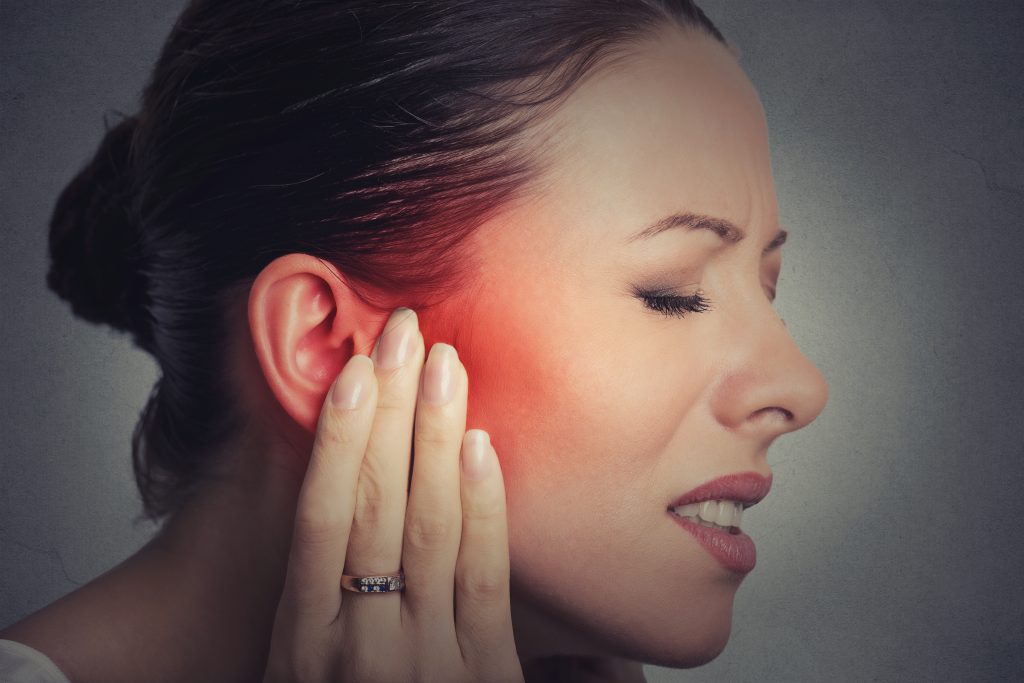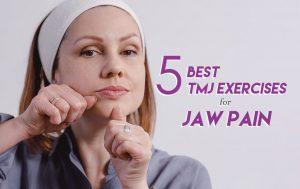TMJ Disorder – Do you wake up every morning, with an unexplained yet excruciating pain in jaw muscle which hampers your daily activities? Though you might have considered ‘living with the pain’, what you need to know is that you might be suffering from Temporomandibular Joint Disorder or TMD, which is common and curable.
Which is the most used joint in the body?
The right answer is the Temporomandibular Joint (TMJ). The Temporomandibular joint connects the lower jaw (mandible) to the skull. This is the point through which several nerve connections pass to receive and send signals to the brain. The TMJ is probably the least spoken about joint in the body, yet it enables crucial activities such as jaw movement, speaking, yawning and chewing. TMJ disorder can cause severe discomfort in the face region and adversely affect other parts of the body.
What are the TMJ symptoms?
- Migraine like headaches
- Pain in jaw joint
- Misaligned jaw or ‘bad bite’
- Jaw clicks when opening mouth
- Locked jaw
- Jaw swelling
- Facial pain
- Clenching of teeth while sleeping (bruxism)
- Worn out or chipped teeth
- dizziness
- Tiredness due to disturbed sleep
- Neck pain
- Upper back pain
- Sore shoulders
- Unexplained tooth ache
- Ringing in the ears
- Poor posture
If you experience most or all of these symptoms, high chances are that you are suffering from TMJD and need to visit a TMJ specialist near you to discuss the plausible treatment options.

How Does TMJ disorder affect other parts of the body?
You must be wondering, how do joints on my face cause pain and discomfort all over my body? Pretty valid question!
Muscles work as a team and as the TMJ becomes incapable of performing properly, it puts a strain on the muscles in the shoulders and neck region, connected via nerve pathways. Sore and inflamed jaw muscles put pressure on the nerves leading to neck, shoulders and back resulting in pain and strain in these regions. Additionally, the contradicted jaw muscles will tilt the face forward causing the muscles in the shoulder, neck and back region to compensate for the lack of work by the TMJ and work extra hard, even at rest. A bad bite can lead to a migraine, earaches, facial soreness, dizziness and a ton of other problems.
Neuromuscular Dentistry focusses in correcting the misalignment of the jaw and aims at achieving healthy muscle movement in relation to the oral anatomy around it. Misaligned teeth can cause ripple effects all over the body which can be either noticeable right from your teenage years or becomes more evident during adulthood.
Other areas of the body affected by TMJ disorder
Eyes
The trigeminal nerve is the prime target as it is connected the eyes and jaw joint. Inflamed nerves behind the eyes can cause blurry vision, severe eye pain, light sensitivity and eye twitches.
Ears
When the TMJ is under stress the ear is directly affected as is adjacent to it. The Eustachian tubes might get blocked leading to ear block, loss of hearing and pain.
Teeth
A bad bite and constant clenching can significantly affect your smile and teeth. Corrosion of teeth, worn out and chipped teeth, wrinkles and deep creases on the sides of the face and shifted lower teeth are signs of misaligned jaws. You start to look much older than you are actually are.
Posture
The physical changes are not limited just to your teeth and face, but muscle disbalance can affect your entire posture. It starts with your face tilting forward, giving a slouching appearance. As time passes there is a certain roundness in your shoulders and back. This slagging appearance yet again makes you look older and worn out.
Restricted mouth movement
TMD limits your ability to fully open your mouth. The stiff and tender jaw muscle can begin to spasm and restrict mouth movement. In severe cases, the disc located in the jaw gets stuck causing a ‘lock jaw’ situation, which might need surgery to get the jaw back in alignment.
Airways
If you a narrow jaw due to genetics or a misaligned bite it affects the position of the tongue in your mouth. While sleeping, your tongue might fall back too far behind your mouth, obstructing the airway and causing breathing difficulties. TMD sufferers are more likely to experience Obstructive Sleep Apnea (OSA) than the general population
Reduced cognitive abilities
Those suffering from TMJ disorder have worse cognitive abilities than someone who does not suffer from this condition. Studies reveal than TMJ Disorder sufferers are so engulfed in pain and discomfort throughout the day, that it becomes difficult for them to focus on other activities. Slower movement and execution can lead to more complex issues like depression and anxiety.
When the jaw is misaligned, it has an influence on your bite, nerves, muscles, spine and posture. Once the muscles of the jaw and face are in their most efficient state, there is an improvement in the range of your mouth movement, posture, flexibility and balance.
A neuromuscular dentist or TMJ Disorder and Sleep Medicine Specialist can definitely help your situation! The start point is to acknowledge the problem and quit the “I have to live with this pain” attitude. Your symptoms are real, your condition is legitimate and you are not alone. Clicking, popping, pain and limited movement are all signs that something is not right and needs to be addressed without delay by a neuromuscular dentistry expert.
When it comes to TMJ Disorder, there are various treatment options, but choosing what relieves pain is less significant than choosing what will completely eliminate the source of pain. Getting yourself check by the best TMJ specialist at Dental World can ensure you get the best TMJ Disorder treatment early on and save yourself from greater problems ahead. To take action and live a pain free life, contact us today for a consultation with the best TMJ Disorder specialist in Kolkata.











